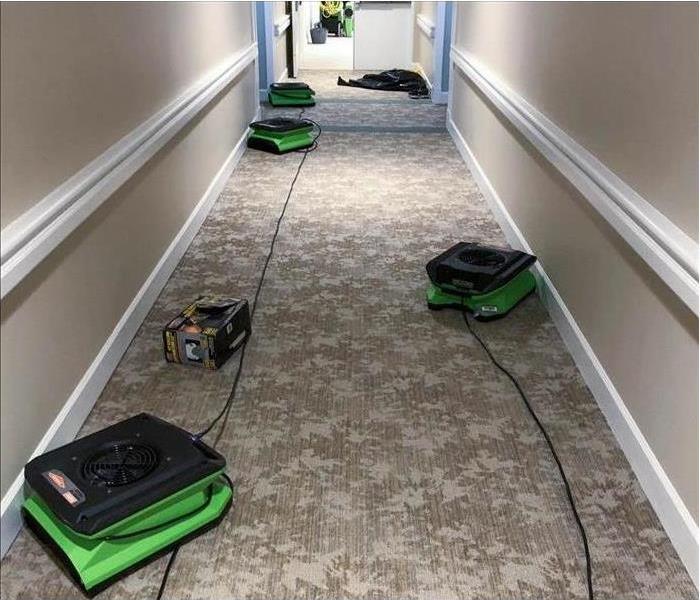How To Mitigate Water Damage
12/30/2021 (Permalink)
Water Mitigation
Mitigation should begin as soon as a property owner or manager notices signs of water damage. Whether you discover a supply line leaking or you need a pipe burst cleanup, these water cleanup measures can limit the severity of damage.
Address the Cause
Damage is likely to worsen until the cause is fixed. Take the following mitigation measures:
- Turn off the water supply
- Collect water in containers
- Contact a plumber
These steps can limit the severity of water damage. Once the problem is fixed, cleanup can proceed.
Remove Standing Water
Water left standing will damage contents. Depending on how much water is present, you may need to use towels and a mop, a wet vac, or a pump. If you do not have equipment capable of handling a pipe burst cleanup, contact a water damage cleanup service. Mitigation professionals can quickly address primary and secondary damage.
Clean and Disinfect
It may be necessary to clean or disinfect the damaged area. The treatment required depends on conditions where the leak occurred and the category of water damage. You will need to
- Dry Category One damage
- Clean and disinfect Category Two damage
- Clean and disinfect Category Three damage
Category One water is clean and treated. Category Two gray water is contaminated but does not contain solid waste. Category Three black water is highly contaminated and may contain sewage.
Dry the Area
It is necessary to dry the affected area regardless of the category of water damage. You may use air movers, dehumidifiers, or fans. This equipment will promote faster drying and draw moisture out of porous surfaces. Drying can limit the severity of water damage.
The owner or manager of a commercial property should fix the cause of water damage as soon as possible. If pipe burst cleanup or other major mitigation measures are necessary, hire a water cleanup service located in Star Prairie, WI.






 24/7 Emergency Service
24/7 Emergency Service
